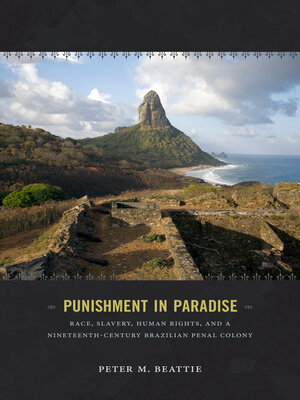Punishment in Paradise
ebook ∣ Race, Slavery, Human Rights, and a Nineteenth-Century Brazilian Penal Colony
By Peter M. Beattie

Sign up to save your library
With an OverDrive account, you can save your favorite libraries for at-a-glance information about availability. Find out more about OverDrive accounts.
Find this title in Libby, the library reading app by OverDrive.



Search for a digital library with this title
Title found at these libraries:
| Library Name | Distance |
|---|---|
| Loading... |
Throughout the nineteenth century the idyllic island of Fernando de Noronha, which lies two hundred miles off Brazil's northeastern coast, was home to Brazil's largest forced labor penal colony. In Punishment in Paradise Peter M. Beattie uses Noronha as a case study to understand nineteenth-century Brazil's varied social and cultural values, especially in relation to justice, class, color, civil condition, human rights and labor. As Brazil's slave population declined after 1850, the use of colonial-era disciplinary practices at Noronha—such as flogging and forced labor—stoked anxieties about human rights and Brazil's international image. Beattie contends that the treatment of slaves, convicts, and other social categories subject to coercive labor extraction were interconnected and that reforms that benefitted one of these categories made them harder to deny to others. In detailing Noronha's history and the end of slavery as part of an international expansion of human rights, Beattie places Brazil firmly in the purview of Atlantic history.







